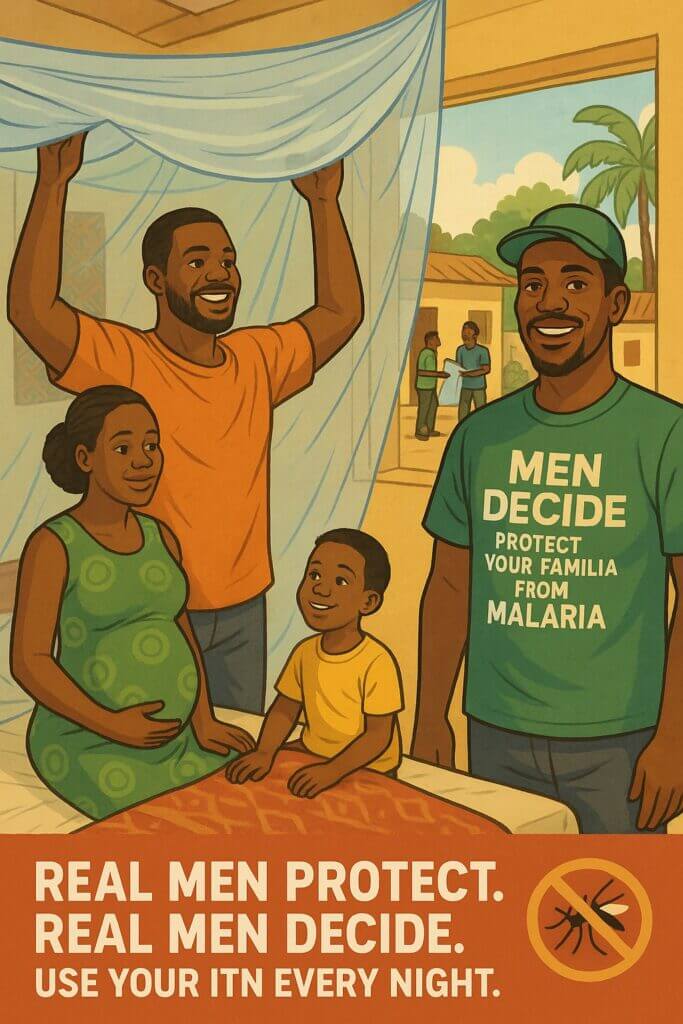Client Introduction
This campaign was designed and executed in collaboration with public health stakeholders as part of Ghana’s national strategy for malaria prevention and control. The goal was to implement innovative, culturally sensitive communication strategies to improve the correct use and care of Insecticide Treated Nets (ITNs) across vulnerable populations. The initiative aligned with the broader objectives of reducing malaria-related morbidity and mortality in high-risk groups, particularly children under five and pregnant women.
Brief
Malaria continues to be one of Ghana’s most pressing public health and socioeconomic challenges. Despite significant investment in malaria control strategies, inconsistent and improper use of ITNs remains a barrier to progress. While women have traditionally been responsible for the use of ITNs, we identified a critical gap: low male involvement in malaria prevention behaviors at the household level.
The central proposition of the campaign, titled “Men Decide,” was to shift social and behavioral norms by positioning men as active champions in the proper use and care of insecticide-treated nets. The campaign targeted:
– General public
– Male partners
– Pregnant women
– Parents/caregivers of children under five
The dual objectives were:
– Business Objective: Influence behavior change among 85% of the general population in the use of ITNs.
– Communication Objective: Increase awareness and educate communities on the correct use and care of insecticide-treated nets.
Strategy and Execution
To maximize cultural relevance and public impact, the campaign utilized a male engagement approach, supported by celebrity endorsements and multi-platform outreach.
Key strategic elements included:
– Celebrity Endorsement: Popular male personalities were enlisted to promote ITN usage, shifting perceptions and encouraging male participation in malaria prevention.
– Multimedia Communication: A mix of radio, TV, and community-level activations amplified the campaign message across urban and rural populations.
– Behavioral Messaging: Communication focused on correcting misconceptions about ITNs, emphasizing proper handling, daily use, and maintenance to increase effectiveness.
– Community Activation: Engagement activities were held at antenatal clinics and public gathering points to reinforce messages through interpersonal communication and drama-based interventions.
This integrated strategy helped normalize male involvement in family health decisions, particularly around malaria prevention.
results
The “Men Decide” campaign achieved strong impact and measurable results:
– 80% awareness was generated on the correct use and care of ITNs across target communities.
– 75% recall rate was recorded during post-campaign evaluation, indicating high message retention.
– A 70% attitudinal shift was observed among pregnant women attending antenatal clinics, reflecting increased adoption and proper use of ITNs.
The campaign demonstrated that engaging men as decision-makers in health-related behavior change can significantly amplify impact and sustainability. It set a new standard in malaria prevention communications and has since been referenced as a model for community-based health interventions in West Africa.








